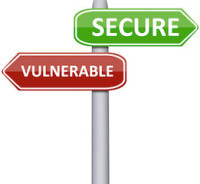The notion that women executive directors and board members of small nonprofits (they mostly aren’t in the leadership roles of the large ones) play small nags at me.
In my writing, I’ve hinted at it but mostly danced around the topic.
When I see it play out in fundraising, which it does in spades, it makes me sad. It’s a powerful reminder of how important philanthropy is to achieving our missions.
I’m sharing these ideas based on my own story and what I’ve witnessed over the last 25 years with friends, colleagues, and clients in the nonprofit sector.
With that said, I know many women that “play big” and continue to have an impact with their work, both as volunteers and executive staff. I consider these women mentors wheth er I know them or watch from afar.
er I know them or watch from afar.
And, the fact is, many women ED’s that are “playing small” (whatever that means for them) are making a difference. This post is not meant to discount their work. They are in the trenches changing lives every day.
Rather, it’s about why it’s important for women to breakthrough and empower themselves to do the work they yearn to do. The work they aspire to and are capable of doing.
As Brene Brown says, vulnerability is the birthplace of courage. BTW, if you haven’t read Rising Strong, it’s a must read.
This post is not prescriptive. I have come to believe that change doesn’t come from learning the latest approach or the right tactics, although those things are important.
It comes and sticks when we decide to do it. And believe we can.
Here are the 3 ways that women play small (in my humble opinion)
1. Limiting beliefs
There’s a lot written about how women are held back in their careers by self-doubt, lack of confidence, and limiting beliefs.
It’s as true for women CEO’s of fortune 500 companies as it is for women executive director’s of nonprofit’s with a $500,000 budget.
Why is that?
I’ve learned this from Tara Mohr’s book Playing Big. I’ve written about this in previous posts.
She speaks about the ways that women hide. Does this sound familiar?
Many women want to have all of their ducks in a row before moving forward with something important to them.
You know how it goes, “Before I begin the XYZ project, I need to take this class… or write a plan… or get a degree… or finish this other project.”
Men, on the other hand, jump right in, make mistakes, and iterate until they get it right.
Then there’s our inner critic. That’s the nail in the coffin. When we listen to those crazy thoughts and self-doubts that take up space in our psyche, we end up taking fewer risks that ultimately stop us in our tracks.
How do limiting beliefs impact our ability to fundraise effectively?
- How do we show up with our donors if we doubt ourselves? Does that translate to doubting the effectiveness of our nonprofit?
- How do we show up with our staff and board if we doubt ourselves?
- When we’re planning next year’s budget, how is self-doubt playing into the decision?
All personal breakthroughs begin with a change in beliefs.
Listen to this episode on Fresh Air with Shonda Rhimes about her new book Year of Yes. It will blow you away.
2. Misplaced Power
Oh, I could go on and on about this, and I have in previous posts. This idea is a real game changer. Take this to heart and you’re on your way.
The bottom line! We are equals with our donors. They are not doing us a favor when they give money. They are doing it for themselves.
I heard this quote recently from Peter Drury when speaking at a workshop about raising major gifts.
He told a story about a women that regularly make’s sizeable gifts to nonprofits. She asked with curiosity, why are you spending so much time writing your mission?
“When I give money, it’s not about your mission, it’s about mine.”
Your donors have hopes and dreams. That’s why they give money. Self-interest is always at play with donors.
You are equals with your donors. They bring the resources and you bring the expertise. See them as partners in crime. Together you have the power to make change happen. Period.
And besides, who wants to give money to a nonprofit leader that has limiting beliefs about themselves and their nonprofit? Not me.
Watch this TED talk of Lynne Twist. You’ll never be the same.
You’ll be ready to ask for the money you need (as partners) to move the needle. Not just barely make budget that year.
3. Neglecting your career
The fact is, developing your expertise and creating a career path that lines up with your vision, confidence, and capability is what will make a difference for you, your nonprofit, and the sector.
Developing leadership and fundraising skills and expertise in board development is essential to growing you and your organization.
As an executive director, participating fully in fundraising and supporting and training your board is what will unleash your ability to take control of the future of your nonprofit, in collaboration with the board and your partners (donors).
It’s where the rubber hits the road for creating change. And it’s what will make you marketable. But first, you need to know how.
Executive directors are incredibly busy working long hours and making sacrifices behind the scenes. I’ve been there.
They have a hard time justifying spending time and money on ONGOING training (not just an occasional workshop) and surrounding themselves with others that they would like to emulate.
The fact is, that should be one of the highest priorities for all executive directors. No, I take that back. Getting rid of your limiting beliefs comes first.
Believing that you have what it takes to figure something out, even when you have no idea, is the stuff of great leaders.
What is something impactful that you’ve learned from a colleague or nonprofit leader that you admire?




Leave A Response